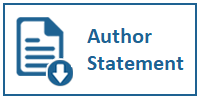Article Processing Charges & Article Submission Charges
Every manuscript submitted to IJNMT will not have any Article Processing Charges and Article Submission Charges. This includes submitting, peer-reviewing, editing, publishing, maintaining and archiving, and allows immediate access to the full-text versions of the articles.














